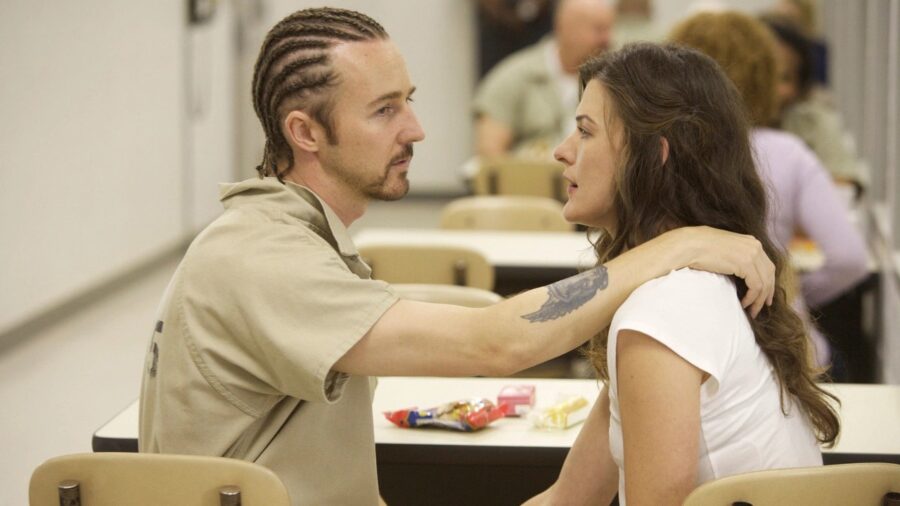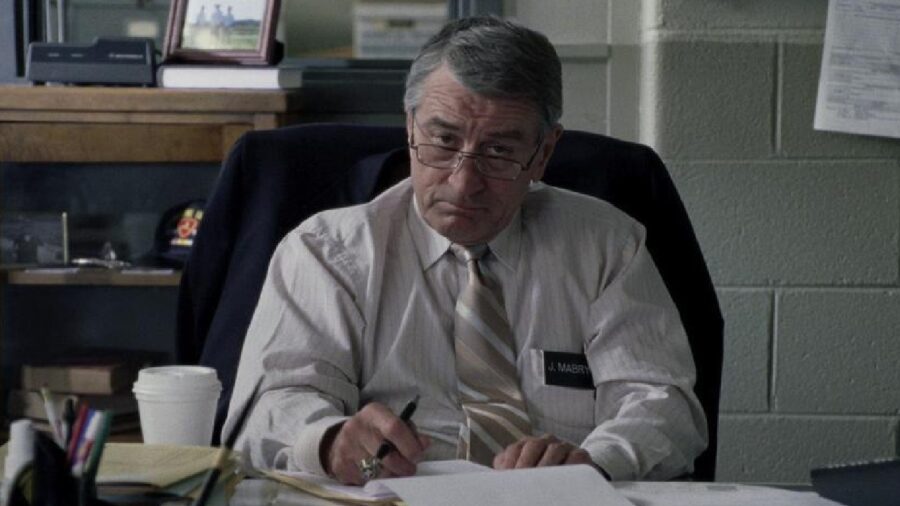The Max Scandalous Crime Thriller That Flew Under The Radar

Every so often, a crime drama comes out that is met with negative reviews despite its all-star cast. 2010’s Stone, starring Robert De Niro, Edward Norton, and Milla Jovovich, is one of those films that failed to win over critics and audiences alike but tells a compelling story about faith, morality, and deception that’s worthy of your consideration if you find yourself questioning the concept of free will. Though Stone was a box office bomb, it doesn’t deserve all of the hate because its slow-burn delivery and open-ended conclusion will leave you pondering about its message and themes for days.
Stone Is A Slow-Burn

Stone first introduces us to Robert De Niro’s Jack Mabry, a parole officer weeks away from retirement. Though he’s free to end his career on a high note, Jack requests to extend his employment so he can close out all of his current cases and see them through to their final review. Among the inmates he’s reviewing is a convicted arsonist named Gerald Creeson (Edward Norton), who prefers the nickname Stone.
Milla Jovovich Steals The Show

Jack meets with Stone to review his case file and is initially reluctant to reduce his sentence. Stone, who claims that he’s reformed and has paid his dues, is desperate to get out of prison and reunite with his wife, Lucetta (Milla Jovovich). At home, it’s evident that Jack’s marriage is falling apart, and his wife, Madylyn (Frances Conroy), spends her days reading scripture.
Free Will

Toying with the concept of free will, Stone uses temptation as its primary vehicle to drive its plot forward. Lucetta seduces Jack in an attempt to get him to reconsider Stone’s case, and Stone turns to reading scripture while in prison to manipulate Jack into thinking he’s turned over a new leaf. Throughout the film, the religious radio station in Jack’s car talks about sin, faith, and redemption as he drives to and from work, often setting the tone for the scenes that follow.
The Crumbling Life Of A Parole Officer

While Jack’s life slowly unravels, he begins to question his own sense of morality as he tries to ride out his last few assignments. Stone, whose only goal is to be a free man, uses Jack’s fragile mental state to his advantage. Lucetta, who lives life on her own terms, harasses Jack outside of work and calls his house after hours on numerous occasions, which puts a considerable amount of stress on Jack’s already strained marriage.
A Box Office Flop

Stone was a resounding box office failure, earning only $10.3 million against its reported budget of $22 million. It did not fare any better on the critical front and was met with a 50 percent critical score against an audience score of 21 percent on Rotten Tomatoes. Most of the negative feedback Stone received was in regard to its heavy-handed approach to religious themes without offering a satisfying third-act payoff.
The Performances Were Praised

Poor critical reception notwithstanding, Roger Ebert praised the film and went so far as to say that both Robert De Niro and Edward Norton were in top form while taking on roles that were beyond their usual scope of work.
Stone may not have been a critical or commercial hit upon its release, but it’s an effective film that explores the darker side of faith and morality. Despite the posturing and pageantry portrayed throughout the film, nobody is truly innocent in this tense crime thriller. If you’re willing to give Stone a chance, you can stream it on Max and see for yourself.












